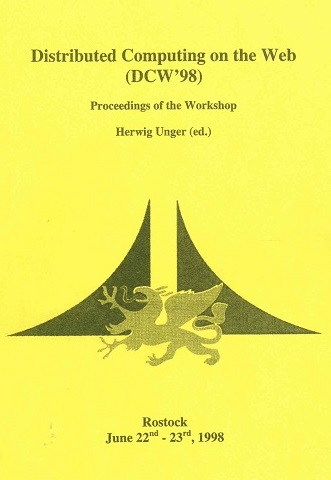20 Years Peer-to-Peer Research

The roots of the so called Web Operating System (WOSTM) dates back to the year 1997, when Peter Kropf, John Plaice, and Herwig Unger published their ideas on a system, which could made data and services available all over the Internet and locate them without any centralised search engine. In fact the WOS, which was soon later implemented as a first prototype and shown on the CeBIt fair in Hannover has been the first P2P system. Later on, systems like Napster, Gnutella or Freenet become more popular due to the possibility to share rare mp3 files of popular music and even videos.
Since this time, the team around Herwig Unger (including Markus Wulff, Hauke Coltzau, Daniel Berg, German Sakarian and Mario Kubek) devote their research to various aspects of decentralised, P2P based systems. Many publications appeared discussing opportunities for an innovative content management basing on newly discovered principals on decentralised structure building and evolution, self-organisation and system management. Recently, with the emergence of the Industry 4.0 initiatives as well as a part of different modern technologies those principles gain an increasing importance.
By their work, the team of the todays department of Communication Network is with its 20 year lasting research work in the area of decentralised systems probably the group with the biggest experience and competency in Germany.
Selected Publications
- Towards a Web Operating System (WOS) (pdf 88 kB)
- Overview about the Resource Scheduling in the Web Operating System (WOS™) (pdf 244 kB)
- Two-Level Communication Protocol for a Web Operating System (WOS™) (pdf 75 kB)
- WOS: an Internet Computing Environment (pdf 120 kB)
- Distributed Computing on the Web
- Distributed Communities on the Web


